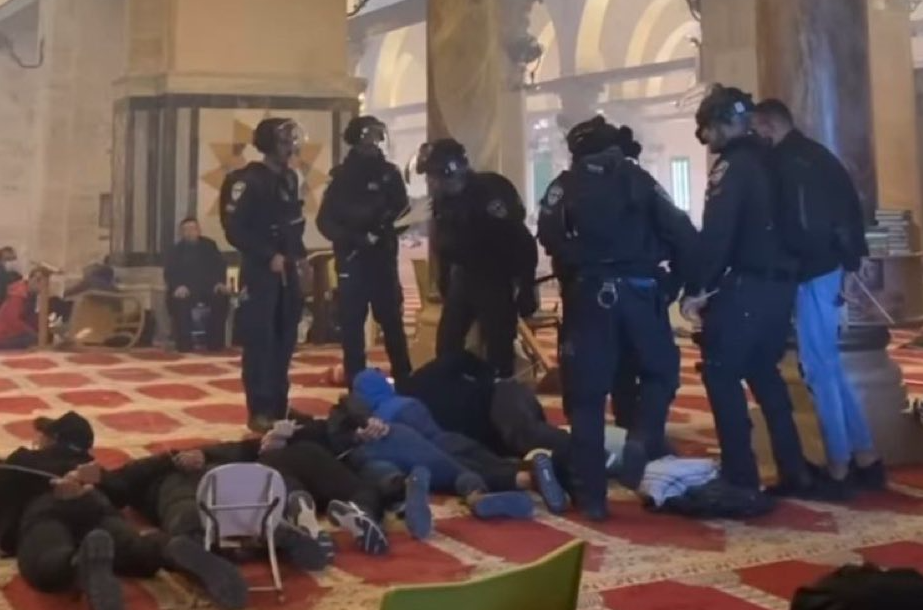At least 150 Palestinians have been injured after gathering for Friday morning prayers at the Al-Aqsa mosque compound in Jerusalem, with Israeli forces entering the holy site and clashing with worshippers and rioters – in scenes reminiscent of last year.
In a context of renewed tensions across the region, Friday morning saw further clashes in the Old City between Israeli forces and Palestinians celebrating Ramadan at the Al-Aqsa mosque.
Videos posted on social media show Israeli forces setting off stun grenades and tear gas at the mosque compound, with local Al-Aqsa authorities claiming 400 Palestinians have been arrested. Israeli forces meanwhile are claiming 300 arrests.
Worshippers are also shown having barricaded themselves inside the holy site amid a cloud of tear gas, while others were pictured throwing rocks as the situation escalated shortly after the Friday morning prayers.
Related News
- EU and UNRWA sign political declaration on support to Palestinian refugees amid financial crisis
- EU questions Israeli decision to ban Palestinian NGOs
- EU calls for an immediate end to violence between Israel and Hamas
The Israeli Foreign Ministry tweeted that they had entered the prayer site to seize rocks that had been allegedly gathered for any potential confrontations. “Police were forced to enter the grounds and remove the stones and rocks in order to prevent further violence,” the tweet read.
Israeli forces stated they were forced to intervene after rocks were thrown towards the Western Wall below, a major holy site for Jews.
Repeat of last year
Access to the Al Aqsa mosque had been heavily restricted on Friday morning by Israeli authorities, particularly through the Damascus Gate which is the route used by many Palestinians coming from the occupied West Bank to access the holy site.
Blocking this route to Al-Aqsa has been a source of tension, particularly for revellers wishing to attend Friday prayers in the holy month of Ramadan.
This year, Israeli forces had allegedly tried to keep a more low-key presence and not have as many restrictions, but this morning's violent scenes and escalation were reminiscent of last year’s clashes.
Palestinians have believed that any large police presence near the Al-Aqsa mosque is a huge provocation, particularly during the holy month of Ramadan.
Al-Aqsa is a red line
Confrontations in and around the Al-Aqsa mosque last year during Ramadam led to a significant escalation in April 2021: what initially began as clashes subsequently turned into an 11-day war between Israel and Palestinian militant groups, which ended with the bombing of the besieged Gaza Strip.
“The continued harm to Al-Aqsa is a red line for us, including in the context of coalition stability,” Palestinian President Abbas said in an interview on local radio.
The Al-Aqsa Mosque is Islam’s third holiest site and also sits on the Temple Mount, the holiest site in Judaism. It is therefore often at the centre of flashpoints, particularly this year as the Muslim and Jewish religious celebrations of Ramadan and Passover, which starts today, coincide.
Recent weeks have seen a significant rise in tensions, with 14 Israelis having been killed in attacks since March 22, with at least 25 Palestinians also killed during police and military raids in the occupied West Bank.

